Dear WesleyNexus Colleagues:
In last month’s newsletter, we focused on the thriving “parachurch” movement in the United States, in spite of the trending data that show an increasing number of young people moving out of the organized religion orbit, saying that “none of the above” serves as an adequate self-identity for them. But this does not demonstrate that these same persons, the “nones,” have left behind religion or spirituality. The reality is that people, particularly younger persons, are redefining their notions of God, or at least are searching for more adequate concepts than those that have come down to them out of long religious traditions. This is true not just for Christian and Jewish concepts of the divine, but can be seen among younger people in the traditions of Hinduism, Sikhism, Islam, and even Buddhism. By the turn of this last century, we have seen books published called “The Evolution of God,” “The History of God,” “The Battle for God,” “God: The Problem,” “God: A Biography,” and “God, Mystery, Diversity,” to name just a few. Once the scholars finished their 20 year seminar on the Historical Jesus, and subsequent work on Paul and the remainder of the New Testament canon (under the auspices of the Westar Institute), they turned their attention on the next big issue: “God and the Human Future.” After some four years of discussion on “post-theism” – forms of theology after the death of God – that seminar soon will be publishing the results of its work. All of which serves as the context of our focus in this newsletter – which is grounded in our revisit to the work of Edgar S. Brightman, (1884-1953), Methodist theologian and philosopher from the early 20th century. Brightman provided the intellectual foundations for what became known as Boston Personalism. Brightman’s work, for almost 40 years, served as the theological core of the Methodist Episcopal Church prior to the 1948 Methodist Church merger. The text below was written by Edgar Brightman, whose long career was centered at Wesleyan University and Boston University School of Theology. His book The Problem of God (1930) foreshadowed many of the challenges we are currently facing in Methodism now, and provides a Wesleyanway forward. The passage below comes from his preface and seems like a good follow-up to the newsletter from last month.
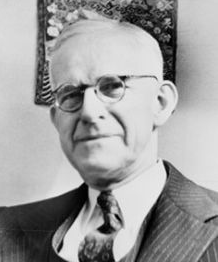
The Problem of God has grown out of the conviction that the idea of God is in need of revision. Religious tradition and experience, philosophical thought, the events of history, and the growth of scientific knowledge, all contribute to our conception of the aspect of reality which [humans] worship and which they call God. While knowledge and experience have been enlarging, until recent times the traditional idea of God as held by Christian theism has remained practically unchanged. The eternity of God has been confused with the eternity of a special idea about God. In the past few decades, however, there have arisen many doubts and new opinions about God. It is only natural that this should occur. Indeed, it is obvious that no idea ought to be believed if it can neither withstand criticism nor learn from its critics. Yet [humans] greatly dislike to contemplate the possibility of change in their fundamental religious beliefs. It is, however, almost self-evident that the advance of knowledge must mean a change in our thought of God. Few beliefs are more absurd than the belief that [human’s] present ideas about God are incapable of improvement… The view which I have come to hold is that a God who is creative, supreme and personal, yet is genuinely limited within his own nature by “Given” experiences eternally present, which his will does not create, but which his will can control, no matter how refractory they may be… seems closer to the empirical factors of evolution and daily life, more in harmony with the combinations of love and pain which experience reveals, and hence more satisfactory as a solution of the problem of evil than traditional theism… Frankly, I believe in a God who has more to do than has been done, and so is capable of growth; and is a God who is not the voluntary cause of all human misery, although is supreme in the sense of being able to bring meaning and value out of all possible misery. pp 9-10 The Problem of God. 1930. Note: “Men” modified to [humans].
Now, we are not making any claim that Brightman’s ideas will re-emerge unscathed in the 21st century and serve unchanged as the bedrock of Methodist thought for the future. Among others, Charles Hartshorne, representing process theology as a contemporary of Brightman, raised a number of issues that still await clarification. Hartshorne and Brightman maintained an extensive correspondence over 25 years, which has been published and has many insights from which we can learn today. For instance, Hartshorne was critical of Brightman’s concept of “the Given,” saying at one point: “Brightman includes (in what God eternally is and knows) the principles of rationalism, logic, mathematics, and calls this the Given. What this has to do with perceptions of concrete actualities is inadequately defined, implying, without quite stating it, a doctrine of dual transcendence. However, Brightman allows a notion of the absolute ideal to haunt his discussion of divine finitude and temporality, and thus returns to classical insights after a long detour.” For his part, Brightman, in his 1948 review of Hartshorne’s Yale lectures published as The Divine Relativity, comments: “To Dr. Hartshorne, God is a being (sic) in social relations such that all persons exist in him without losing their own identities. The customary idea of God is criticized because the author believes it to involve absoluteness in a sense that precludes relationships. Atheism is similarly criticized as having reference only to a non-relative God. Thomists will question the arguments advanced, but all readers interested in theistic philosophy will find reason to respect the historical and critical powers of the author.”
Dare we say, all who see themselves doing theology in the Wesleyan tradition, should want to recover some of the ideas of Edgar Brightman, Charles Hartsnorne, Schubert Ogden and John Cobb, as we find our way forward in the days ahead. We must be attuned to what the “nones” are saying concerning notions about the divine reality that have lost credibility in the 21st century. Brightman has established a strong foundation on which we can build relevant notions as we interpret today’s religious experience.
The mission of WesleyNexus is to bring you the best resources at the intersection of science and Christian faith, to promote the most reasoned and Christ-informed dialogue, that together we might make a difference in a world that is increasingly shaped by science and technology. We kindly ask your financial support to help us continue this important work. WesleyNexus is a 501(c)(3) charitable, educational organization, and we will acknowledge all gifts from individuals for tax reporting purposes. Thanks in advance for your support.
Blessings,
Rick, Bob, Jennifer, Maynard, and the rest of the WesleyNexus team.
**************************************************************
Evolution Weekend in Maryland 2020 – Livestreaming February 9

WesleyNexus plans to sponsor a Seventh Annual Evolution Weekend program in Maryland, and if funds permit, we will live stream the event once again for churches and colleagues across the country. Our program in 2020 most likely will take place at 4:00 pm Eastern time so that mid-west and western churches can participate. The theme for this event will be PATRIARCHY: in Science, in Education and in the Church. A distinguished panel is on hand for presentations, followed by Q & A:
In Science: Dr Amy Swain (Warffeli) will keynote. Amy’s scientific background is in structural biology, which is a cross-cutting field that enables scientists to visualize molecules. After doing research at the National Cancer Institute and then Hoffman-LaRoche, Inc., Amy entered science program administration where she has supported the advancement of structural biology technologies for researchers. At the National Institutes of Health from 1999-2016, Amy supported biomedical research and, since 2016, has been supporting biological and environmental research at the Department of Energy. Amy is a member and active lay person at Grace United Methodist Church in Gaithersburg, Maryland.
In Education: Dr Caryn Musil will keynote: An Associate Director for the American Association of Colleges and Universities, Dr. Musil was raised Episcopalian, but she says, “It was the First United Methodist Church of Germantown in Philadelphia that brought my husband and me back to the church after a long hiatus. Part of the attraction in 1976 was that FUMCOG had already shifted the language of the Lord’s prayer to “Our Mother/Father,” had a gender inclusive “homemade” hymnbook, and married gay couples. I was teaching women’s studies at the time at La Salle University so being part of a feminist worship was critical for me.” After moving to DC, Caryn and her husband have been active at Westmoreland Congregational UCC.
In the Church: Dr. Carla Works will keynote: Recently raised to full professor at Wesley Theological Seminary, Dr. Works is professor of New Testament. Her research interests include Pauline studies, the New Testament’s use of Israel’s scriptures, biblical ethics, and theological interpretation. She holds a Master’s degree from Yale Divinity School and a Ph.D. from Princeton. A published author, mother, minister’s wife, and native Arkansan, she incorporates into her teaching anything from Dr. Seuss’s stories to the Arkansas Razorback “hog call” to help illustrate a point. She is passionate about teaching, student learning and deeply committed to the church.
The event is about 75 days away, so there is plenty of time for persons in the WesleyNexus network to organize local discussion groups on February 9th, connect to the event through the link posted on the WesleyNexus website, and hold your own discussion on this timely topic. More information will be forthcoming is subsequent newsletters.
**************************************************************
You Can Help the Next Generation Experience the Harmony between Science & Christian Faith
By Jennifer Secki Shields
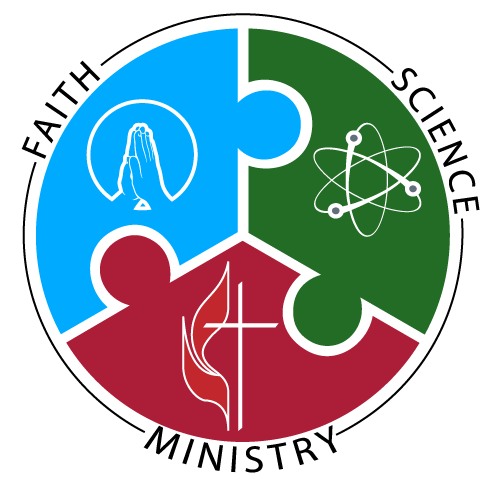
I watched as my eleven-year-old son, arms outstretched and eyes to the horizon, braved the edge of the mountain. We were on top of Pikes Peak, Colorado, more than 14,000 feet in elevation. And we weren’t alone. Hundreds of others had braved the white-knuckled trek up (and back down) the mountain just to perch at the precipice where heaven and earth meet.
As I watched them, I wondered, “Why?”
We humans might be described as “cosmic toddlers” in the universe—daring; full of wonder; insatiably curious; and busy, busy, busy finding the next unexplored place, whether it’s deep in the brain or deep in the cosmos. At the same time, we are creatures who long for meaning and purpose. We don’t just have experiences. We reflect and ask what those experiences mean as we write the narratives of our lives. This—all of this—is who we are. We will continue to explore and make new discoveries that will, again and again, cause us to contemplate meaning, purpose, and our place in the universe. And this is why our physics will always meet our metaphysics, why our science will always meet what we hold sacred.
Sadly, for many people today, the meeting of science and faith causes perceptions of conflict and an inability to reconcile these two ways of knowing and experiencing the world. In the individual life, the resulting cognitive dissonance often manifests as angst or despair. In our corporate life together, it manifests as culture wars where some reject faith, others reject science, and both sides ‘dig in their heels’ against each other. Both sides lose.
That’s why the work of Discovery & Faith matters. We are helping the next generation experience the harmony between science and faith. We train and equip pastors, Christian educators, and parents to facilitate constructive dialogue and engagement with science and faith in the ministry setting. Three-years-old now, our work is growing and making a difference. In 2019 our work included conducting training workshops for clergy and Christian educators; helping churches plan faith-and-science sermon series; doing Bible lessons that incorporate STEM with children; and expanding our network. We need your support to continue making a difference in 2020!
There is much that seems in need of healing and reconciling in our society today. Discovery & Faith is making a difference in the culture war between science and faith. I invite you to partner with us in this culture-changing work by making a tax-deductible donation:
**************************************************************
Report on some local discussions in the Nation’s Capital
While the country as a whole has been glued into the Congressional hearings on Impeachment, those us involved in the dialogue broadly described as “Science, Religion and Society,” have been enriched with an incredible array of discussions. In the last 30 days, we have benefited by participating in the following symposia, workshops, conferences and dialogues:
– The Forum on Religion and Ecology at Yale, took the lead in sponsoring a conference at the Berkley Center at Georgetown University, focusing on “The Great Work” of Thomas Berry. Of course, John Grim and Mary Evelyn Tucker headlined the presentations over the two-day event, but other excellent presentations came from representatives of the American Teilhard Association, the Deignan Institute for Earth and Spirit at Iona, the Thomas Berry Foundation, Georgetown University, Duquesne University, among others. A special treat came when we heard personal remarks via ZOOM, from Professor Brian Swimme of the California Institute of Integral Studies.
– on November 3, a large audience attended the nineteenth Annual Tachmindji Interfaith Event at the American University, for a presentation sponsored by the Washington Theological Consortium, on the topic “The Journey of a Former White Supremacist.” The focus of the dialogue, monitored by Dr. Marc Gopin of George Mason University, was the transformation of R. Derek Black who spent years immersed in white supremacist political activism. Derek is now a doctoral student at the University of Chicago, and is the subject of a book by Eli Saslow Rising out of Hatred: The Awakening of a Former White Nationalist.
– at St. Mary’s Ecumenical Institute in Baltimore, Methodists from across the Northeastern Jurisdiction gathered for a two-day Summit on “Privilege, Power and Poverty: A Social Justice Conference for Such a Time as This.” Rooted in John 10:10 and Micah 6:8, the conference used various forms of art to explore the depth of racism in the American experience. Keynoting the event through four presentations was Dr David Anderson Hooker, a director of JustPeace, the United Methodist Center for Mediation and Conflict Resolution and professor of peacebuilding at the KROC Institute for International Peace Studies at the University of Notre Dame.
– at Foundry United Methodist Church in Washington DC, a packed house heard Dr. Ibram X Kendi, National Book Award winner, speak on “How to be an Anti-Racist.” Kendi is founder of the The Anti-Racist Research and Policy Center at the American University and an Ideas Columnist for The Atlantic. Ibram changed his middle name in 2013 to “Xolani,” meaning peace in Zulu, and his surname Rogers to Kendi (meaning “loved one”) when he wed Sadiqa, a pediatric emergency physician. Ibram also led a workshop on anti-racism at Foundry Church over the weekend.
– at the National Cathedral, on November 12, a huge audience enjoyed a dual presentation by Dr. Francis Collins and Dr.Jennifer Wiseman, talking about the contrast between “the big and the small” in contemporary science. Dr. Collins is one of the country’s leading geneticists and longtime head of the National Human Genome Research Institute at the National Institutes of Health. Known for his emphasis on ethics in genetic research, and for his discoveries of the genetic misspellings that result in cystic fibrosis, neurofibromatosis and Huntington’s disease, he is author of The Language of God. Dr. Jennifer Wiseman (on the Advisory Board of WesleyNexus) is an astronomer who studies the process of star and planet formation in our galaxy using radio, optical, and infrared telescopes. She served as a Congressional Science Fellow for the American Physical Society and now directs the program of Dialogue on Science, Ethics and Religion (DoSER) for the American Association for the Advancement of Science. Dr. Wiseman is a Fellow of the American Scientific Affiliation, a network of Christians in Science. This event, moderated by Michael Gerson, columnist for the Washington Post, was the most recent in the Cathedral’s Honest to God series, in which civic leaders share the ways in which their lives have been shaped by the practices of their faith and the interplay between religion and public leadership. Each event is an evening of conversation that invites public figures to pull back the curtain, revealing to us the faith that undergirds their public action.
**************************************************************
Study by Arizona State University finds how people engage with science can promote unbelief or beliefs about God

Researchers from the Arizona State University Department of Psychology found that scientific information can create a feeling of awe, which leads to belief in more abstract views of God. The work was published in the September 2019 issue of the Journal of Experimental Social Psychology and is now available online.
“There are many ways of thinking about God. Some see God in DNA, some think of God as the universe, and others think of God in Biblical, personified terms,” said Kathryn Johnson, associate research professor at ASU and lead author on the study. “We wanted to know if scientific engagement influenced beliefs about the existence or nature of God.”
https://medicalxpress.com/news/2019-07-people-engage-science-unbelief-beliefs.html
**************************************************************
Tomorrow’s Gods: What is the future of religion? By Sumit Paul-Choudhury

In this article, Paul-Choudhury addresses the question of “what next” for religion. He begins by outlining a functionalist view of religions that provides adherents with social and psychological benefits that are tangible. But, as Peter Berger speculated in 1960s, religion was no longer delivering the goods and that “the 21st Century, religious believers are likely to be found only in small sects, huddled together to resist a worldwide secular culture”. Religion is not disappearing, in this Berger was incorrect. In this article the author unpacks numerous trends that may point the direction of religion in the future.
https://www.bbc.com/future/article/20190801-tomorrows-gods-what-is-the-future-of-religion
**************************************************************
Is There A Place For God In Science? Brian Cox Responds | Q&A
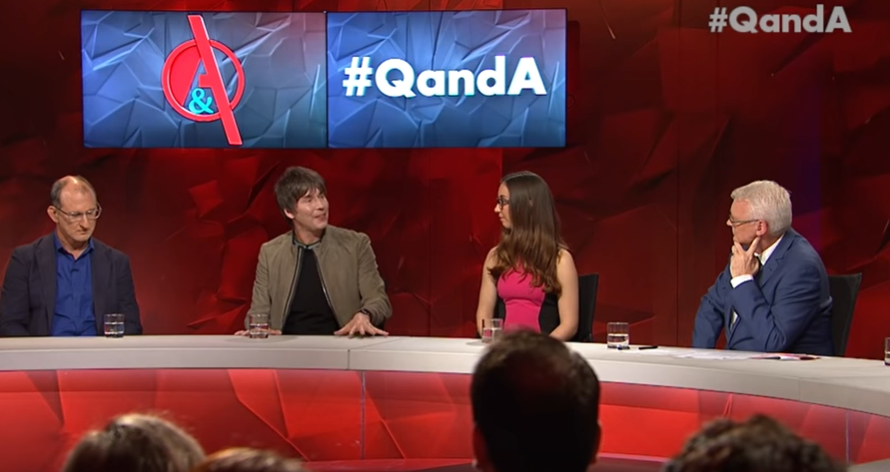
Professor Brian Cox is a British particle physicist at the University of Manchester and Royal Society Professor for Public Engagement in Science. He has carried out research at the ATLAS experiment at the Large Hadron Collider at CERN, Switzerland and the H1 experiment at DESY in Hamburg.
He is best known to the public as the presenter of a number of science programs for the BBC, boosting the popularity of astronomy, physics and exploration.
In this youtube video, Cox addresses the question of God’s existence and argues that science cannot answer this question. His response is that he does not know and that science cannot help answer the question due to the inherent limits of empirical science.
https://www.youtube.com/watch?v=FoKo4M-bbVI
**************************************************************
The blind spot with Adam Frank, Marcelo Gleiser and Evan Thompson

It’s tempting to think science gives a God’s-eye view of reality. But we forget the place of human experience at our peril.
Adam Frank is professor of astrophysics at the University of Rochester in New York. He is the author of several books, the latest being Light of the Stars: Alien Worlds and the Fate of the Earth (2018).
Marcelo Gleiser is a theoretical physicist at Dartmouth College in New Hampshire, where he is the Appleton professor of natural philosophy and professor of physics and astronomy, and the director of the Institute for Cross-Disciplinary Engagement (ICE). He is the author of The Island of Knowledge (2014).
Evan Thompson is professor of philosophy and a scholar at the Peter Wall Institute for Advanced Studies at the University of British Columbia in Vancouver. He is a Fellow of the Royal Society of Canada. His latest book is Waking, Dreaming, Being (2015).
https://aeon.co/essays/the-blind-spot-of-science-is-the-neglect-of-lived-experience
**************************************************************
Albert Einstein: Genius, Physicist…and Theologian? By Alister McGrath
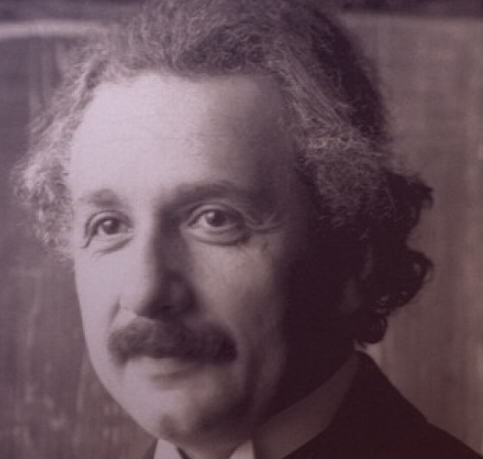
Einstein’s writings reveal an intense commitment to ethical and political issues and a strong interest in religion as an appropriate response to the mystery of the world. Where some might try to compartmentalize these aspects of life or see them as mutually inconsistent, Einstein seems to have seen science, ethics, and religious faith as integral—yet different—aspects of an authentic human existence.
It’s not just Einstein’s ideas on science, politics, religion, and ethics that matter; it’s the fact that he was able to hold them together. Maybe he can help us do the same”.
Alister McGrath is a scholar and writer who is presently Andreas Idreos Professor of Science and Religion at Oxford University. After initial work in the natural sciences, McGrath moved into the field of Christian theology. He is best known for his definitive and widely used textbooks on Christian theology and his authoritative biography of C. S. Lewis. As a former atheist, McGrath is fascinated by the interaction of faith, science, and atheism, and writes regularly on these themes (Amazon.com).
https://biologos.org/articles/albert-einstein-genius-physicistand-theologian
**************************************************************
A Blessing For Absence / John O’Donohue (Eternal Echoes)
May you know that absence is full of tender presence
and that nothing is ever lost or forgotten.
May the absences in your life be full of eternal echo
May you sense around you the secret Elsewhere which holds
the presences that have left your life.
May you be generous in your embrace of loss.
May the sore of your grief turn into a well of seamless presence.
May your compassion reach out to the ones we never hear
from and may you have the courage to speak out for the excluded ones.
May you become the gracious and passionate subject of your own life.
May you not disrespect your mystery through brittle words or false belonging.
May you be embraced by God in whom dawn and twilight
are one and may your longing inhabit its deepest dream
*************************************************************
ISSR program at American Academy of Religion in San Diego
The International Society for Science and Religion (ISSR) has announced its schedule for the Annual Meeting of the American Academy of Religion, which takes place in San Diego on November 23-26, 2019. This year, ISSR is presenting three sessions and co-sponsoring the annual science and religion reception on Saturday evening. In addition to the ISSR events, many other sessions at AAR address themes broadly related to science and religion. Some of these events are listed here, following the ISSR sponsored sessions. For more information about the AAR or the Annual Meeting, visit https://www.aarweb.org/. To see the full program book, visit https://papers.aarweb.org/program book. Questions about ISSR events may be sent to Ron Cole-Turner at coleturn@pts.edu.
1. Saturday – 1:00-3:00 PM. P23-207. Theme Deification and Creaturehood in an Age of Biotechnological Enhancement.
Saturday – 7:00-10:00 PM. Reception: Religion and Science Hospitality Event. Marriott Marquis-Marriott Grand 13 (Lobby Level).
2. Sunday – 9:00 AM-11:30 AM. P24-104. Theme: GEN XYZ: Futures of Science and Religion.
3. Sunday – 3:30 PM-5:00 PM. P24-303. Theme: The Future of “Science and Religion”: Beyond “Religion” and “Science”? Papers for the session are available at https://sites.google.com/site/beyondreligionandsc
Other Sessions of Interest:
· Saturday – 3:30-5:00 PM. Theme: What Is Nature? Toward a Science-Engaged Theology of Nature. Science, Technology, and Religion Unit.
· Sunday – 1:00-3:00 PM. A24-211. Theme: Catching up to CRISPR: Moral and Theological Responses to an Unprecedented Technology.
· Sunday – 5:30 PM-7:00 PM. A24-428. Theme: The Nuts and Bolts of Transformation: A Zygon Roundtable on Science Fiction’s Imagined Technologies and the Civic Imagination.
*********************************************
Reminders
Second Annual “Cosmotheandric” Conference at the Omega Center, Dec 6-8, 2019

All of us in the WesleyNexus network should have a high interest in the upcoming conference sponsored by the Omega Center at Villanova University, December 6-8, on the theme “The Inside Story: Exploring Love at the Heart of the Universe.” The work of the Omega Center is guided by Sister Ilia Delio, a Franciscan Sister of Washington, DC and American theologian specializing in the area of science and religion, with interests in evolution, physics and neuroscience and the import of these for theology. This Conference is now sold out, so the only option for those not registered is to subscribe to the presentations on-line at https://omegacenter.info/conference2019/.
*********************************************
John Wesley, Early Evangelicalism, and Science
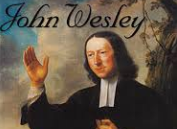
Tuesday, 25 February 2020, at 7:00 pm.
Location: Parmer Hall, Messiah College, Mechanicsburg, PA.
A free lecture sponsored by The Central Pennsylvania Forum for Religion and Science, the Messiah College Honors Program, College Ministries, and the Sider Institute for Anabaptist, Pietist, and Wesleyan Studies.
The rise of evangelicalism coincided historically with the reception of modern science in mainstream culture. The new science was generally embraced by evangelicals as a source of “wonder, love, and praise.” Indeed, one of the ways in which scientific literacy spread was through the many popular works disseminated by John Wesley on science, medicine, electricity. This lecture explores Wesley’s many-sided, thoughtful engagement with science and his exemplary concern to “look upon nothing separate from God.”
Flyer link will be here
*******************************************
Wesleyan Theological Society – 2020 Annual Meeting
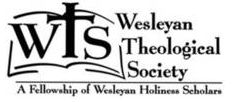
The 2020 annual meeting will be held in March at the Nazarene Theological Seminary in Kansas City, MO. The Call for Papers has been circulated, so we encourage all of our colleagues in the WesleyNexus nertwork to submit an abstract right now for a presentation in the Science and Religion Track. And encourage your graduate students to do the same. For further information or to submit paper proposals, contact WTS President Christina Smerick, christina.smerick@greenville.edu. The entire announcement and suggested topics for the 2020 Annual Meeting can be found here.
**************************************
The Center for Open and Relational Theology

What Is Open and Relational Theology?
“Open and Relational Theology” is an umbrella label under which a variety of theologies and believers reside. This variety shares at least two ideas in common:
God experiences time moment by moment (open)
God, us, and creation relate, so that everyone gives and receives (relational)
Most open and relational thinkers also affirm additional ideas, such as the idea love is our ultimate ethic, creatures are free at least to some extent, all creation matters, life has purpose, genuine transformation is possible, science points to important truths theology needs to incorporate, and more.
For more information click here.
**************************************
IRAS CONFERENCE ANNOUNCEMENT & CALL FOR PAPERS

The theme for the 2020 IRAS Star Island Conference is “NATURALISM— AS RELIGION, WITHIN RELIGIONS, OR WITHOUT RELIGION?”
IRAS, the Institute on Religion in an Age of Science, will have its 66th conference, June 27 – July 4, 2020, at Star Island, NH. What are the consequences of science-inspired naturalism for religion? In this conference, we will explore and evaluate religious and non-religious options available to those who take science seriously. Briefly, these could be characterized as replacement, reform, and rejection. Speakers will be Owen Flanagan (philosopher), Marcelo Gleiser (cosmologist); Ursula Goodenough (biologist); Sarah Lane Ritchie (theologian); Carol Wayne White (philosopher of religion); Janet Newton (chapel speaker), Willem B. Drees (past-editor of Zygon: Journal of Religion and Science). Program co-chairs for the 2020 Conference are Barbara Whittaker-Johns and Willem B. Drees. The conference will be on Star Island, a small island in the Atlantic, off the coast of Portsmouth, NH – a setting of great natural beauty. We invite proposals for short papers on the theme of the conference and on other aspects of the interactions of science and religion. Topics can be approached from various perspectives, such as science, philosophy, religious studies or theology, history, psychology or sociology. They may consider traditions such as Christianity, Islam or Buddhism; contemporary developments such as religious naturalism, spirituality, or the rise of nones; naturalism in relation to philosophical topics such as moral motivation and values, consciousness, mathematics, or scientific methodology; the history of any such developments; their usefulness in addressing individual needs or global and planetary concerns; and so on. We look forward as well to proposals for panels with up to four participants, addressing a particular issue from multiple angles. Proposals for short papers or panels are invited; deadline November 30, 2019; earlier submissions are evaluated on a rolling basis. See for more information and the submission form https://www.iras.org/2020-conference.html. For more information: Willem B. Drees, w.b.drees@tilburguniversity.edu
